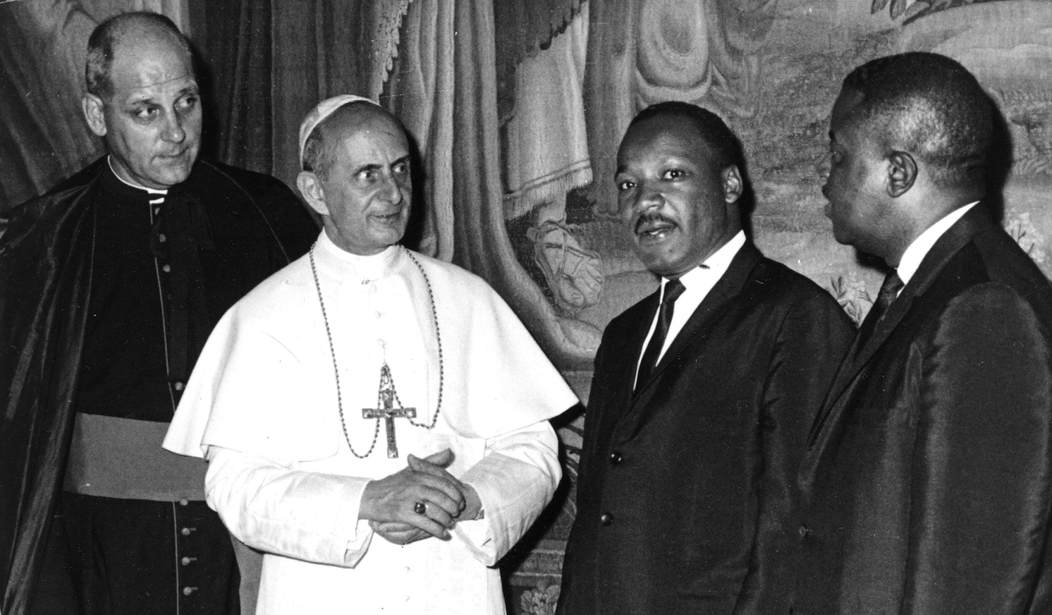The leader of America’s Catholic bishops said that on Martin Luther King Jr. Day “we must not deny the work before us to heal both old rifts and new wounds, including those created by the evil of racism and related mistrust and violence.”
Cardinal Daniel DiNardo, archbishop of Galveston-Houston and president of the U.S. Conference of Catholic Bishops, noted in the MLK Day statement that the late civil rights leader was one who “had the courage to rise above the challenges of their day and call their fellow citizens forward in the unending task of building an ever more just nation.”
“His inspiration guides us as we seek to build peace in our communities under the recent strain of division and violence,” DiNardo said, highlighting how the USCCB’s Task Force for Peace in Our Communities recently “examined and reported on how the bishops of the United States may improve their own contribution to this ongoing national effort.”
The task force was led by Archbishop of Atlanta William Gregory, who said in releasing the report earlier this month that “the effort needed to root out racism and create healthy dynamics in our neighborhoods, dynamics based on encounter and deeper understanding, is a longterm project.”
The first recommendation of the report was prayer, followed by using “the convening power of the Church” to bring together community dialogue sessions on issues such as race, violence, policing and incarceration.
“As we now encourage our parishioners to grow in their awareness about race relations and related issues, clergy and staff will benefit from dialogue meant to explore how the Church can plan to be even more active within communities that face tension and race‐related strife,” the report said. “By surfacing local realities and discussing collaborative approaches, we can ensure that the Church is proactive in building bridges and providing constructive forums for engagement by all people. Bishops may wish to explore intercultural competence trainings for staff and parishioners.”
Bishops were also urged to recognize new engagement opportunities for the Catholic Campaign for Human Development, which “helps to fund many groups that work to address, in constructive ways, concerns about race, poverty, housing violence, education, policing, and much more.”
The report also notes that the bishops’ convocation in July of this year “presents a tremendous opportunity for the USCCB to lift up constructive solutions to address issues relating to race, and to provide solutions and resources to local communities.”
DiNardo said in his MLK Day message that “society cannot continue this work” of the civil-rights era “if its members are unwilling to engage in encounters of the heart that honestly immerse them in one another’s lives.”
“The Martin Luther King Jr. Day holiday provides a wonderful opportunity to examine how well each of us is doing in walking together with others in true encounter and solidarity,” the cardinal said. “Dr. King reminded us that our obligations to one another ‘concern inner attitudes, genuine person-to-person relations, and expressions of compassion which law books cannot regulate and jails cannot rectify. Such obligations are met by one’s commitment to an inner law, written on the heart. Man-made laws assure justice, but a higher law produces love.'”
“On this national holiday, may we think prayerfully about the life and legacy of the Reverend Dr. King who directed his work toward both the structural and personal causes of racism. As he urged the nation from the steps of the Lincoln Memorial, ‘no, no, we are not satisfied, and we will not be satisfied until “justice rolls down like waters, and righteousness like a mighty stream'” (Amos 5:24).”









Join the conversation as a VIP Member